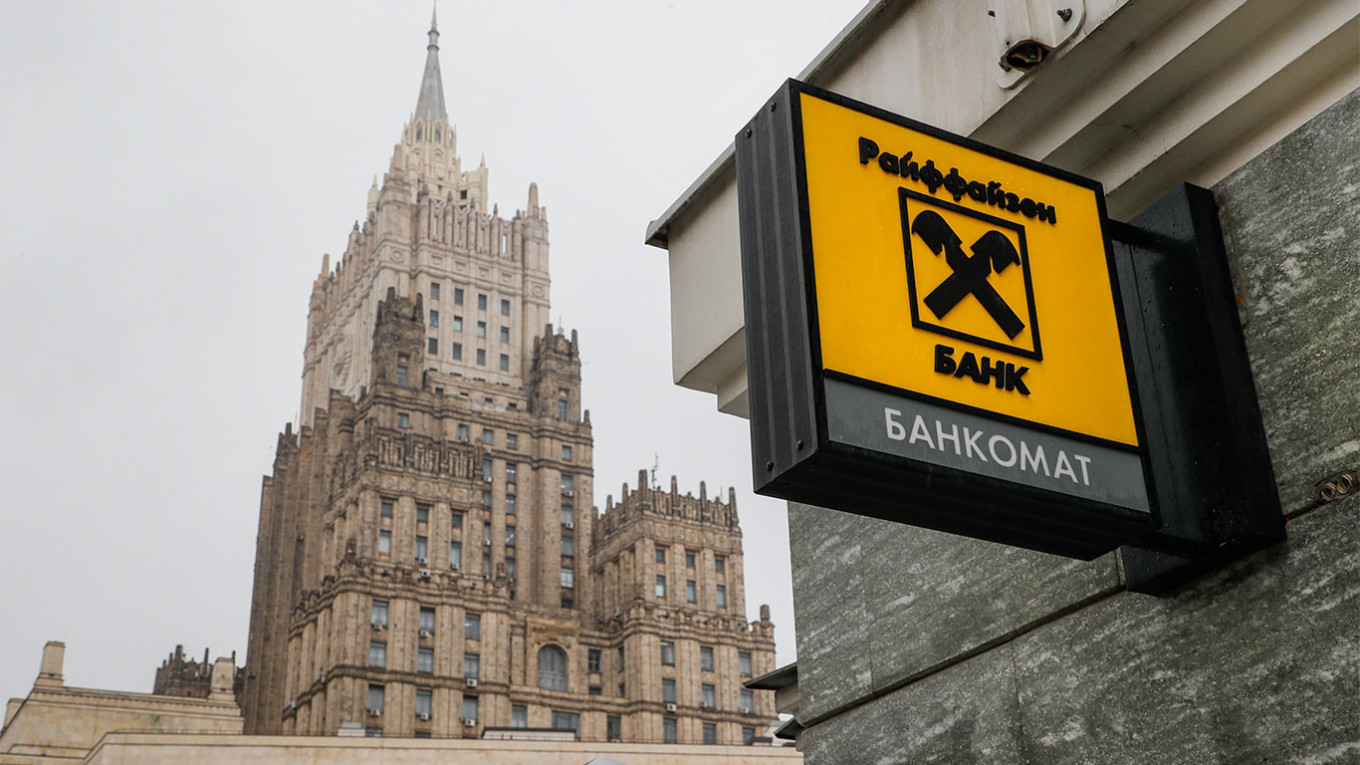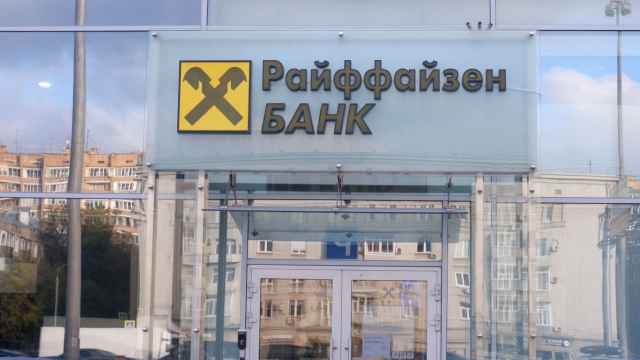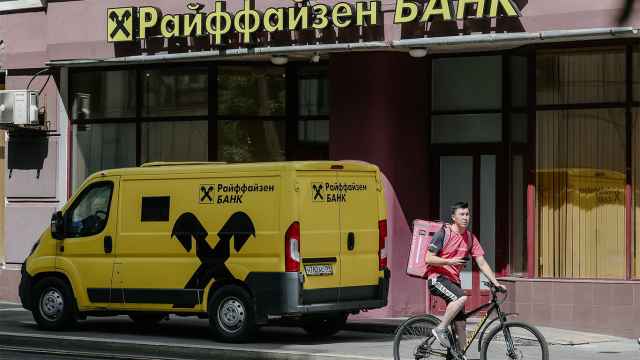The Russian division of Austria’s Raiffeisen Bank will start charging 50% commission on all incoming U.S. dollar transfers, the bank announced Monday in a statement, citing unspecified “market conditions.”
“The bank is forced to limit the number of incoming transfers in U.S. dollars due to changing market conditions. We encourage customers to use other payment methods,” the bank said in a statement, without providing further details.
The minimum commission charged will be $1,000, up to a maximum of $10,000. The new rules will come into force on Sept. 1, the bank said, and will apply to incoming transfers from other banks.
A combination of Western sanctions and Russian countermeasures have made it either impossible — or increasingly expensive — for Russia-based banks to deal with U.S. dollars.
Several Russian banks were kicked off the SWIFT financial network and banned from dealing in Western currencies following the country's February 2022 offensive on Ukraine.
In addition, Moscow has imposed strict controls on the use of foreign currency, restricting cash withdrawals in dollars and euros to those who held open accounts before the start of the war and putting a $10,000 limit on the amount of hard currency that can be physically taken out of the country.
Raiffeisen’s move comes as reports suggest the Kremlin is considering a tightening of capital controls in its bid to sustain the value of the Russian ruble. The currency slid below 100 against the U.S. dollar last week in volatile trading, triggering the Central Bank to hike interest rates to 12% in an emergency meeting.
The Austrian bank — which was the largest foreign bank operating in the country before the invasion — had spent years building up its Russian operations. It specialized in servicing European companies, their foreign workers and other high-end international clients, but had started aggressively building up its portfolio of Russian domestic business clients in the years before Moscow invaded Ukraine.
Its Russian unit was seen as an ultra-profitable jewel in the group’s international crown, providing steady, reliable and strong profits despite headwinds for the banking sector in Raiffeisen’s core markets in Europe.
In an interview with The Moscow Times in 2019, a Raiffeisen Bank executive said the Russian unit consistently had the highest profitability of any subsidiary and was considered by top management in Vienna a “strategically important” part of the business. That performance continued through the war, with the lender reporting 301 million euros in earnings from Russia in the first quarter of 2023 — 40% of the bank’s entire profit during the period.
Raiffeisen previously announced plans to gradually exit Russia, but has not yet offloaded its operations and has been accused by campaigners of only paying lip service to its intention to quit the market. Other foreign lenders, such as France’s Société Générale, took significant losses in 2022 as they sold off or abandoned their Russian assets.
A Message from The Moscow Times:
Dear readers,
We are facing unprecedented challenges. Russia's Prosecutor General's Office has designated The Moscow Times as an "undesirable" organization, criminalizing our work and putting our staff at risk of prosecution. This follows our earlier unjust labeling as a "foreign agent."
These actions are direct attempts to silence independent journalism in Russia. The authorities claim our work "discredits the decisions of the Russian leadership." We see things differently: we strive to provide accurate, unbiased reporting on Russia.
We, the journalists of The Moscow Times, refuse to be silenced. But to continue our work, we need your help.
Your support, no matter how small, makes a world of difference. If you can, please support us monthly starting from just $2. It's quick to set up, and every contribution makes a significant impact.
By supporting The Moscow Times, you're defending open, independent journalism in the face of repression. Thank you for standing with us.
Remind me later.







